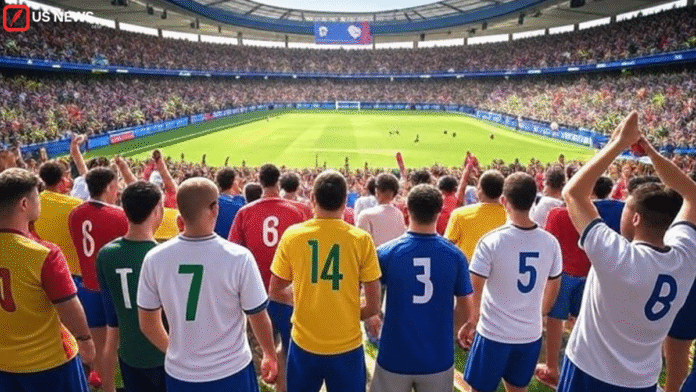The 2026 FIFA World Cup will be historic — the first to be jointly hosted by the U.S., Mexico, and Canada. With more than 3.5 million fans expected, America is bracing for the largest sporting event in its history. But alongside the celebration, questions are emerging about how political decisions, immigration rules, and rising costs will affect international visitors and American fans.
Immigration Concerns Under Trump’s Policies
President Donald Trump has doubled down on strict immigration enforcement, sparking concerns among fans and FIFA officials. Visa restrictions, tighter border checks, and new security protocols could make it harder for travelers from South America, Africa, and Asia to attend matches.
Analysts warn that this could reduce international attendance, limiting the multicultural fan atmosphere that makes the World Cup unique.
Tariffs and Economic Impact
Trump’s tariff policies could also inflate the cost of imported goods, from jerseys to stadium materials. FIFA contractors are already voicing concerns about ballooning budgets, which may drive up ticket prices and merchandise costs for fans.
Economists suggest that World Cup visitors may pay 20–25% more for accommodation, food, and souvenirs in the U.S. compared to previous host nations.
Stadiums and Infrastructure Readiness
Despite political and economic hurdles, the U.S. is pushing ahead with massive stadium upgrades. Cities like Los Angeles, New York, and Dallas are set to host matches in arenas that can hold 70,000+ spectators, making them among the largest venues in World Cup history.
Fans’ Perspective
For American fans, the World Cup could be a once-in-a-lifetime event. But for foreign supporters, visa hassles and high costs may discourage attendance. Travel groups in Europe have already reported hesitations among fans who fear a more complicated U.S. entry process.
Conclusion
The 2026 World Cup in the U.S. will undoubtedly showcase world-class soccer, but politics and economics could shape who gets to experience it. Whether the tournament becomes a celebration of global unity or a test of America’s policies remains to be seen.




